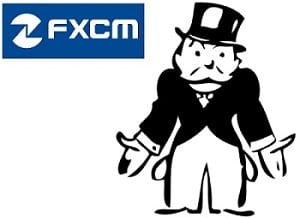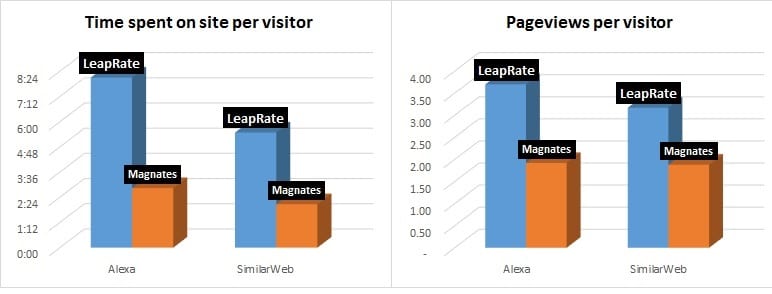Hard to believe, but 2016 is just a couple of days from officially becoming history.
And history was indeed made in the Forex sector during 2016.
When looking at the top Forex Industry stories and themes of 2016, like in 2015, one storyline clearly stood above the rest in reshaping the sector for the months and years to come. If 2015 was the year of the Swiss Franc spike leading to the bankruptcy of brokers such as Alpari UK and LQD Markets and the near demise of industry leader FXCM Inc (NASDAQ:FXCM), then 2016 was the year of the regulator. More details below.
We would also like to take this opportunity to thank all our readers and contributors for a record year at LeapRate. We work hard to bring our readers an exclusive and inside view of what is really happening in the Forex sector, and the results showed. Not only did we more than double our overall readership in 2016, but we far outdid our competitors in important metrics such as time-spent-on-site, and pageviews per visitor. Readers clearly found our content more interesting, more correct, more original, more timely, and more compelling.
Some of the most viewed and shared posts and storylines this past year at LeapRate included:

What does this all mean?

We also expect Forex brokers to make an even harder push into emerging markets in the Far East, where it is still possible to operate with relatively little regulatory scrutiny.

2016 was the second terrible year in a row for FXCM shareholders. FXCM stock was at $165.70 on January 1, 2015. At $16.73 on January 1, 2016. And it stands at $7.15 now.
Operationally, FXCM has actually done fairly well since its near-brush with bankruptcy in the wake of the January 15, 2015 surprise spike in the value of the Swiss Franc. Despite having to sell a number of divisions and business units, and endure a severe cut to its marketing budget, FXCM continues to turn in industry-leading retail forex volumes month after month. But its shares (and its shareholders) continue to suffer, as FXCM continues to be weighed down by its loan from Leucadia.
3. Binary Options industry reform. For the most part, binary options brokers operate largely unregulated, with but a handful of brokers choosing to be licensed. That formula has brought a lot of negative scrutiny to the sector, with (mainly) unregulated brokers using overly aggressive sales and retention tactics and not honouring client withdrawal requests.
Let us be clear- there is nothing wrong with the binary options product at all. Binary option trades have been around for a long time. It is a very simple and easy-to-understand product to trade for retail clients. A binary options trader can never lose more than his/her margin on each trade. The problem has been the way the product has been implemented, with a sizable number of aggressive brokers seeing easy money and taking advantage of sometimes gullible retail clients.

We don’t have a crystal ball in which to gaze, but we believe that 2017 will bring positive strides for the binary options sector. As what happened in the Forex sector several years ago, binary options traders are learning to discern between regulated and unregulated brokers. Regulators (we believe) want to rein things in but want to retain control, something a total ban on binary options wouldn’t accomplish. Whatever happens, 2017 is going to be an important year for binary options brokers.

- IG Group Holdings plc (LON:IGG) buying popular Forex research website DailyFX from FXCM for $40 million
- Playtech PLC (LON:PTEC) buying institutional FX player CFH Group for $120 million
- Ayondo acquiring Singapore investor education app TradeHero ahead of its planned SGX listing
We would remind our readers that the aforementioned Playtech tried to buy both Plus500 Ltd (LON:PLUS) and AvaTrade in late 2015, with both transactions being killed by regulators in the UK and Ireland. We believe that there is more to come in 2017.


